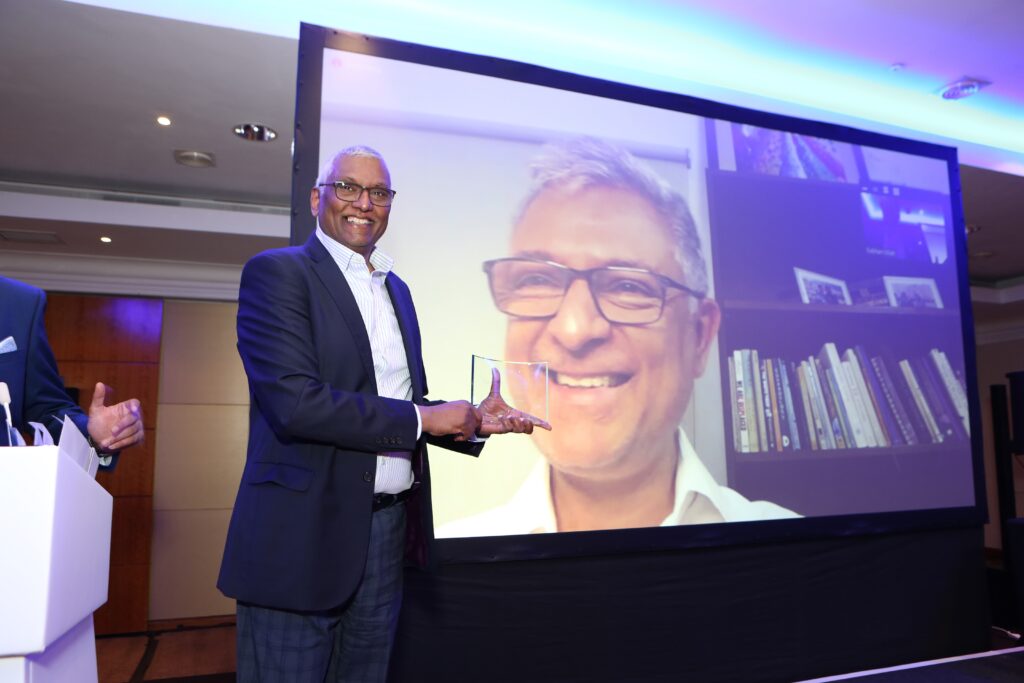PROFESSOR ATUL K. SHAH www.atulkshah.co.uk
Globally renowned expert advisor and broadcaster on culture, accounting, finance, business ethics, holistic education and leadership

The news today is clouded by inequality, fraud and corruption on an unpredented scale. The series of multi-billion dollar scandals at Credit Suisse show how even the most premiere banks have lost their way, and are paying for this in billions. Most commentary focus on the surface of the news, blaming individuals or institutions, but rarely is focus given to the theories, structures, ideas and professions which enable such behaviour. Part of the reason is that finance is clouded in equation and mystery, making the underlying culture and assumptions hard to penetrate. Also apparent wealth and success often disguise the underlying realities of inequality, racism and corruption. Given that Banks hold ‘other peoples money’ why is it that they have the most lavish offices, and the highest salaries, when they really do not grow anything or make anything? We need to keep asking these fundamental questions.
At the recent British Accounting and Finance Association conference, I played a role in transforming the debate and opening our own intellectual hubris and individualistic paradigm to wider cultural, environmental and ethical scrutiny. When a Professor from Cambridge gave a keynote address on a new corporate finance theory for small business, based on neo-classical utilitarianism, I called it out for what it was – empire by equation, and unsustainable. Corporate Finance theory has sadly been a big part of the problem for modern day inequality and climate change. Furthermore, the practice of finance in small businesses throughout the world is hugely diverse and there is no single theory or story. Culture, belief, community and tradition play a huge part in how small business finance is actually practiced. Given the evidence of financialisation, it is so important that finance academics provide new and responsible leadership. Professor Wenxuan Hou BAR editor at University of Edinburgh gave a very constructive vision about how this can change in the future.
I was invited by the Conference of Accounting and Finance Professors to give a keynote address. I chose to speak on how sustainable culture and ethics should be made central to finance education and science, given the climate crisis and black lives matter protests exposing racism and white privilege. I showed practically how this can be done by summarising the findings of my research, and discussed the new ‘Inclusive Finance’ book that is coming out in Autumn 2022. The reception was really heartening – they found my ideas refreshing and relevant to the changes of our time. Professor Neil Kellard, Dean of Essex Business School said it was a ‘great talk which was really appreciated.’ Similarly, Professor Mark Shackleton of Lancaster University found the vision very timely, and said ‘faith and finance need to be reconnected given our huge moral challenges’.
When LSE Professor Al Bhimani won a Lifetime Achievement Award, I connected his vast impact on accounting education with his personal Ismaili culture, faith and community history which shaped his DNA and helped him achieve such heights of intellect. This is rarely done, as we are forced to hide our faith and belief in the academy. The secular academy misunderstands the diverse nature of faith in the world, and its criticality in influencing behaviour and culture. For billions, their beliefs cannot be separated from their conduct, even if sociologists would want to separate the two. Ismailis are one of the worlds outstanding business diasporas, though few finance people are aware or acknowledge this. In fact, modern finance theory has deliberately tried to impersonalise finance, in order to make it objective when in reality there is a lot of subjectivity about its practice. The theory is platonic and universalist, when the reality is bio-diversity and NOT mono-theism. I now have a new regular column with India Global on ethical business and finance.
The whole culture of the conference was unique – Nottingham Business School provided courteous hospitality which made us feel welcome, and Prof Emmanuel Adegbite practiced servant leadership in how he inspired his team to deliver such an excellent experience. BAFA felt like a community rather than a careerist business event. Former BAFA President Professor Lisa Jack led some outstanding inclusion strategies which has brought this academy to such a diverse spirit today. My own research on finance and diversity, which was also presented at the conference, shows that there is a vast history behind this, which the modern academy ought to acknowledge and embrace. Like charity, culture should also begin at home. We can help one another, rise and awaken together. BAFA at Nottingham proved that. Professor Gloria Agyemang in her keynote lecture emphasised that academics need to connect with wider audiences and research problems to understand the different ways in which accountability is being shaped and defined. This website and blog is an attempt to do this.
